
Prohibition is the act or practice of forbidding something by law; more particularly the term refers to the banning of the manufacture, storage, transportation, sale, possession, and consumption of alcoholic beverages. The word is also used to refer to a period of time during which such bans are enforced.

Thujone is a ketone and a monoterpene that occurs predominantly in two diastereomeric (epimeric) forms: (−)-α-thujone and (+)-β-thujone.

The European emission standards are vehicle emission standards for pollution from the use of new land surface vehicles sold in the European Union and European Economic Area member states and the United Kingdom, and ships in EU waters. The standards are defined in a series of European Union directives staging the progressive introduction of increasingly stringent standards.

Markets in Financial Instruments Directive 2014, is a directive of the European Union (EU). Together with Regulation No 600/2014 it provides a legal framework for securities markets, investment intermediaries, in addition to trading venues. The directive provides harmonised regulation for investment services of the member states of the European Economic Area — the EU member states plus Iceland, Norway and Liechtenstein. Its main objectives are to increase competition and investor protection, as well as level the playing field for market participants in investment services. It repeals Directive 2004/39/EC.
La Fée Absinthe is a brand of absinthe, a highly alcoholic, distilled spirit containing the herb wormwood. La Fée Absinthe was created by Green Utopia, which is owned and run by George Rowley.

Wormwood: A Drama of Paris is an 1890 novel by Marie Corelli. It tells the sensational story of a Frenchman, Gaston Beauvais, driven to murder and ruin by the potent alcoholic drink absinthe.

The legacy of absinthe as a mysterious, addictive, and mind-altering drink continues to this day. Though its psychoactive effects and chemical makeup are contested, its cultural impact is not. Absinthe has played a notable role in the fine art movements of Impressionism, Post-Impressionism, Surrealism, Modernism, Cubism and in the corresponding literary movements. The legendary drink has more recently appeared in movies, video, television, music, and contemporary literature. The modern absinthe revival has had a notable effect on its portrayal. It is often shown as an unnaturally glowing green liquid demonstrating the influence of contemporary marketing efforts.
Government procurement or public procurement is undertaken by the public authorities of the European Union (EU) and its member states in order to award contracts for public works and for the purchase of goods and services in accordance with principles derived from the Treaties of the European Union. Such procurement represents 13.6% of EU GDP as of March 2023, and has been the subject of increasing European regulation since the 1970s because of its importance to the European single market.
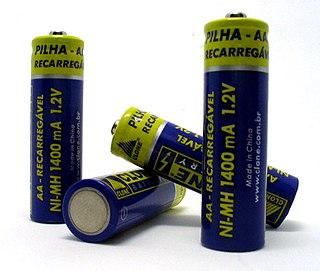
The Directive 2006/66/EC of the European Parliament and of the Council of 6 September 2006 on batteries and accumulators and waste batteries and accumulators and repealing Directive 91/157/EEC, commonly known as the Battery Directive, regulates the manufacture and disposal of batteries in the European Union with the aim of "improving the environmental performance of batteries and accumulators".
Jean Lanfray was a French labourer in Switzerland who was convicted of murdering his pregnant wife and two children in a drunken rage on the afternoon of 28 August 1905 in Commugny, Switzerland. It was later revealed by police that he had drunk an excessive amount of wine and hard liquors that morning, along with two ounces of absinthe. However, due to the moral panic against absinthe in Europe at that time, his murders were blamed solely on the influence of absinthe, leading to a petition to ban absinthe in Switzerland shortly after the murders. The petition received 82,000 signatures and absinthe was banned in Vaud shortly thereafter. A 1908 constitutional referendum led to absinthe being banned in all of Switzerland, and absinthe was banned in most European countries before the outbreak of World War I.

As of 2009, the European Union had issued two units of measurement directives. In 1971, it issued Directive 71/354/EEC, which required EU member states to standardise on the International System of Units (SI) rather than use a variety of CGS and MKS units then in use. The second, which replaced the first, was Directive 80/181/EEC, enacted in 1979 and later amended several times, which issued a number of derogations to the United Kingdom and Ireland based on the former directive.
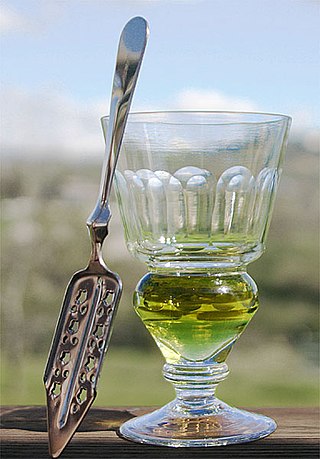
Absinthe is an anise-flavored spirit derived from several plants, including the flowers and leaves of Artemisia absinthium, together with green anise, sweet fennel, and other medicinal and culinary herbs. Historically described as a highly alcoholic spirit, it is 45–74% ABV or 90–148 proof in the US. Absinthe traditionally has a natural green color but may also be colorless. It is commonly referred to in historical literature as la fée verte'the green fairy'. While sometimes casually referred to as a liqueur, absinthe is not traditionally bottled with sugar or sweeteners. Absinthe is traditionally bottled at a high level of alcohol by volume, but it is normally diluted with water before being consumed.
Bohemian-style or Czech-style absinth is a Bohemian version of the traditional spirit absinthe, though it is more accurately described as a kind of wormwood bitters. It is produced mainly in the Czech Republic, from which it gets its designations as “Bohemian” or “Czech,” although not all absinthe from the Czech Republic is Bohemian-style.

The Product Liability Directive85/374/EEC is a directive of the Council of the European Communities which created a regime of strict liability for defective products applicable in all member states of the European Union, the other EEA members and the United Kingdom.
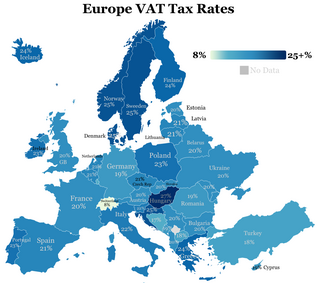
The European Union value-added tax is a value added tax on goods and services within the European Union (EU). The EU's institutions do not collect the tax, but EU member states are each required to adopt in national legislation a value added tax that complies with the EU VAT code. Different rates of VAT apply in different EU member states, ranging from 17% in Luxembourg to 27% in Hungary. The total VAT collected by member states is used as part of the calculation to determine what each state contributes to the EU's budget.
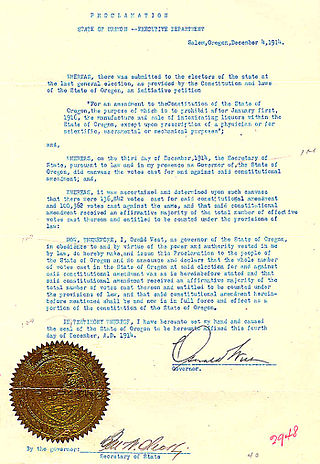
The U.S. state of Oregon has an extensive history of laws regulating the sale and consumption of alcoholic beverages, dating back to 1844. It has been an alcoholic beverage control state, with the Oregon Liquor and Cannabis Commission holding a monopoly over the sale of all distilled beverages, since Prohibition. Today, there are thriving industries producing beer, wine, and liquor in the state. Alcohol may be purchased between 7 a.m. and 2:30 a.m for consumption at the premise it was sold at, or between 6 a.m. and 2:30 a.m. if it is bought and taken off premise. In 2020, Oregon began allowing the sale of alcohol via home delivery services. As of 2007, consumption of spirits was on the rise while beer consumption held steady. That same year, 11% of beer sold in Oregon was brewed in-state, the highest figure in the United States.

The theatre of the Czech Republic has a rich tradition in all genres, including drama, opera, ballet and dance, puppet theatre, black light theatre etc.

Directive 91/71/EEC is an EU directive that was passed by the European Commission in 1991 regarding the level of sweeteners, flavourings and additives used in foods by states within the European Union and banning foods that did not comply. The directive was repealed in 2011.
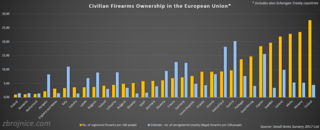
Directive (EU) 2021/555 is a legal act of the European Union which sets minimum standards regarding civilian firearms acquisition and possession that EU member states must implement into their national legal systems. It codified Council Directive 91/477/EEC of 18 June 1991.












